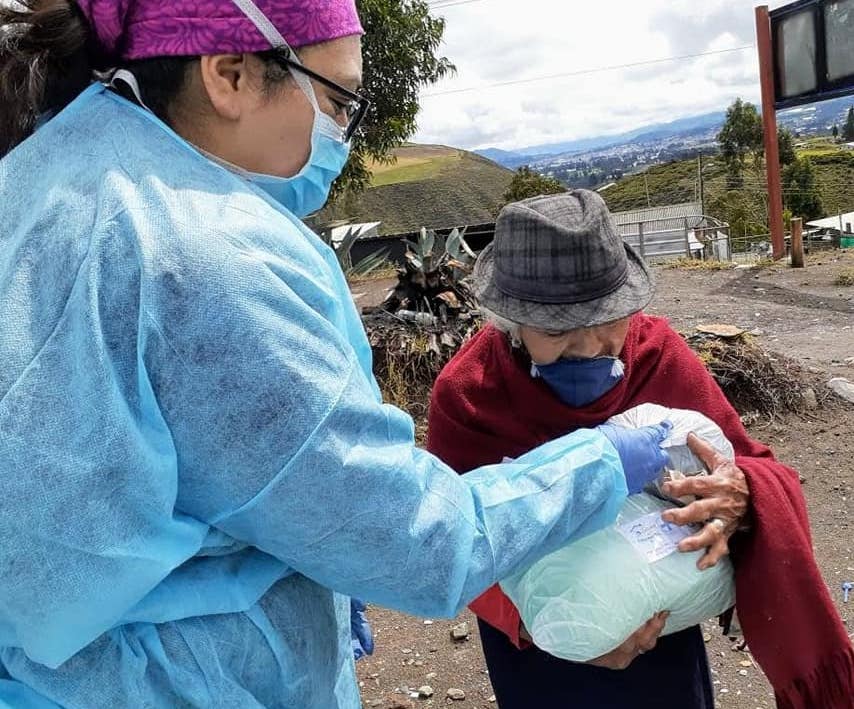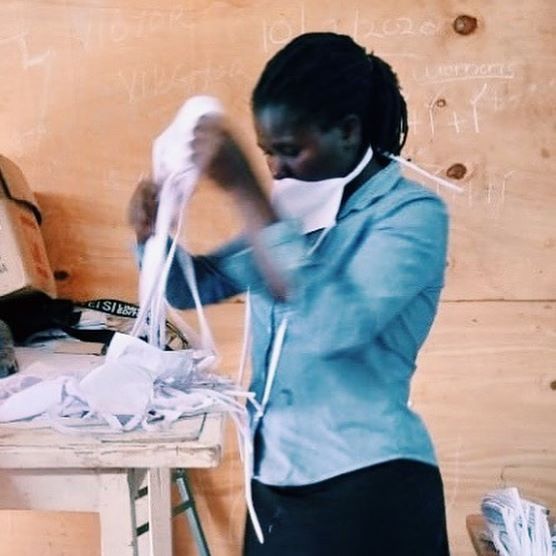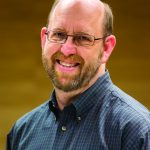
CHICAGO (April 17, 2020) –Covenant World Relief partners around the world continue to minister to poor and marginalized people amid the pandemic through special grant support from Covenant World Relief & Development emergency reserve funds.
The contributions are one aspect of the Evangelical Covenant Church’s new COVID-19 Financial Relief Initiative.
“As the coronavirus crisis grows in the U.S., Canada, and around the world, everyone is impacted in some way. However, it is the unemployed, the elderly, refugees, and the poor who are the most vulnerable,” said Dave Husby, director of Covenant World Relief.
“We have encouraged all partners currently implementing Covenant World Relief & Development-funded community development programs to continue paying the salaries from the budget of the grant, even if they have had to stop or curtail their programs,” Husby said. “In the Covid-19 relief grants we have left open the possibility of using funds to assist staff who have been made vulnerable by the crisis. However, most organizations are using the funds to respond in their communities.”
So far, emergency grants have been extended to 19 Covenant World Relief & Development partners, including the sample listed below:
Ecuador
In a nation where the entire health system has collapsed, Emmanuel Medical Center in Cayambe is serving as an isolation center for people with COVID-19. The center and CASA Hogar, a home for 17 at-risk children, are located outside of Quito and are connected with the Ecuador Covenant Church and operated in cooperation with Santiago Partnership. Clinic staff have access to protective gear and are working with the local Covenant congregation to distribute food and cleaning supplies to families in the area.
The partnership is led by Serve Globally personnel Joel and Kim Delp.
India
With permission from the government, Covenant Social Services (CSS), the relief and development arm of the Hindustani Covenant Church, has started assisting rural communities.
Although India has instituted some of the world’s strictest “shelter in place” restrictions for its 1.3 billion people since March 24, the constraints are more relaxed in rural areas, where residents are expected to practice social distances and other safety measures but can move freely within their own communities.
“During the period of lockdown due to the coronavirus, CSS staff are taking complete precautions to avoid any sort of infection,” said moderator Steven David. “They are consciously working so that no more than five people are gathered for the project planning or implementation.”
Some workers are visiting house to house within the villages to make sure people are aware of the risk of coronavirus and how to protect themselves by using masks, sanitizers, and soap, David said.
The church operates several schools and hospitals through St. Luke’s Medical Society. The school buildings have been turned over to the government for use as needed. Medical and development workers have offered their services to the government to serve throughout the country.
Nepal
Shanti Nepal has been able to provide Personal Protective Equipment to government health workers in Dhading, where workers had no access to PPE. Funds from Covenant World Relief & Development are helping Shanti Nepal continue their operations and provide other health-related services.
South Africa
“This stopping abruptly was so depressing and saddening,” said Audrey Matimelo, executive director of the Zimele Wethu Foundation in South Africa, which has been successful in creating self-sustaining business initiatives through Self-Help Groups (SHGs) in rural communities. The country has been on a near total lockdown since March 27.
“Small businesses that programme participants were building are shut down, and the capital that was meant to be invested in these small initiatives was diverted to meet the immediate needs, such as food during the lockdown period,” Matimelo said. “Some of the small businesses will struggle to have access to feed for their livestock.”
Matimelo’s staff is deeply passionate about their work and were distressed when they learned the government regulations on social distancing would prohibit them from continuing. “I personally have been fearful of the aftermath of the COVID-19, the effects this will have on the social and economic lives of the people in the communities we are serving,” Matimelo said.
But she also has been heartened by the people Zimele serves. One SHG recently posted a video on how they have pooled money to invest in buying hygiene supplies for each member’s household.

Kenya
Jitokeze Wamama Wafrika is working to make 20,000 reusable masks for residents in their region of West Pokot. The masks are being sewn by women who are part of the ministry’s tailoring project for women and girls who do no have access to land to generate food and income.
Mexico
In Monterrey, Mexico, the Family Development Foundation is attempting to move its classes and activities for the community online. In the past two decades, FUNDEFAM has raised up local leaders and transformed the lives of individuals in the midst of violent drug wars between cartels and the government.
The coronavirus crisis, however, led the Mexican government to shut down all schools, classes, and services offered through nonprofits. Although FUNDEFAM is working to create online delivery options, many residents do not have access to computers or the internet, executive director Claudia Garza said.
One teacher of a popular FUNDEFAM painting art class is asking students to continue their work at home and share it online or upload it to the organization’s Facebook page. FUNDEFAM is using messaging apps to stay in touch with youth and children and to offer resources for parents.
The government and several other major donors have cut funding for projects, and it is uncertain whether some programs will continue after the crisis. “Nobody knows how long this emergency will take and how big will be the economic impact, but for sure it will be huge,” Garza said.
Philippines
The Institute for Studies in Asian Church and Culture (ISACC) is a research and training organization specializing in development, missiology, and cross-cultural studies aimed at social transformation within the Asian context. During the crisis, ISACC has been working with non-governmental agencies to assist seven urban churches in providing food to the most impoverished people in their communities. Now they are expanding their services to about 1,000 families in outlying areas.
Their building also has become a quarantine station for people from other nations who were unable to return to their home countries.













